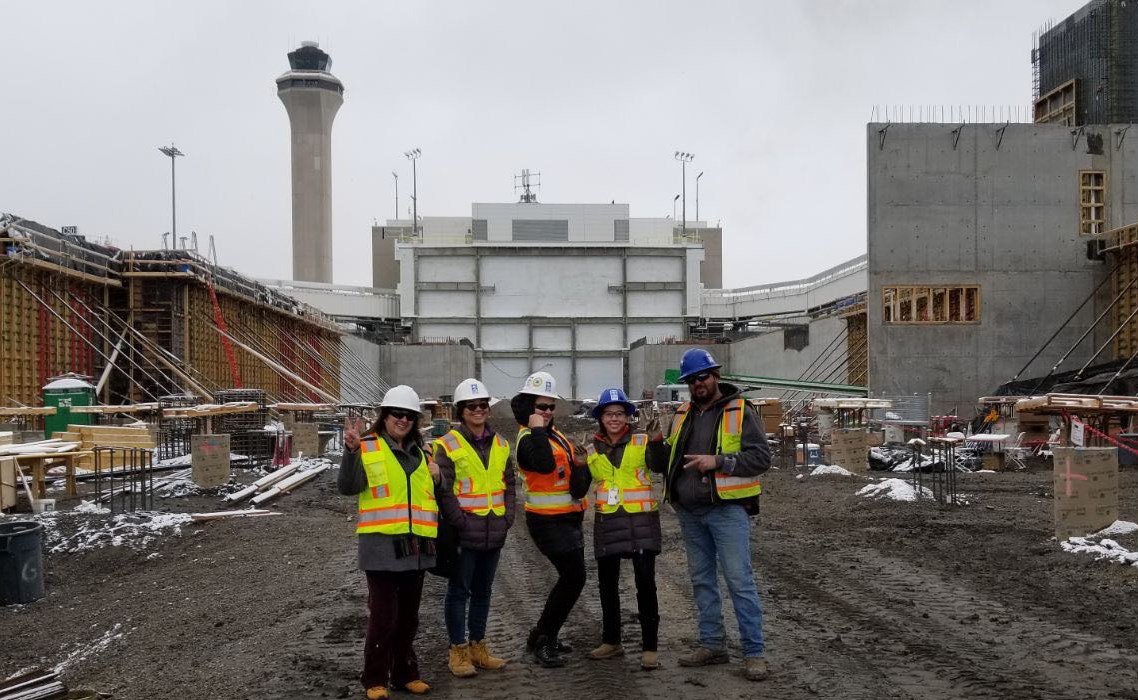ImpactAlpha, June 20 — The women of color in Common Future’s first racial equity accelerator are tapping into their lived experiences to help forge easier pathways to homeownership and rental housing for Black families, build a safety net for Black and low-income single mothers, and support minority immigrants.
The accelerator provided $500,000 in unrestricted grants and technical assistance to 10 women of color-led organizations developing creative models to close the racial wealth gap and drive economic equity (see, “Common Future launches first racial equity accelerator”). “The program was designed to support these organizations by removing social, financial, and political barriers that stand in the way of transformative change,” Common Future’s Andrea Perdomo told ImpactAlpha, “and the curriculum was curated for the cohort and the needs of each organization.”
The Oakland-based organization marked the conclusion of the inaugural three-month program with a half-day summit with the all women of color cohort. Common Future, which is undergoing a leadership transition, will host its next cohort in 2024, said Perdomo. “We will spend three months investing in a cohort of organizations that are actively working to dismantle economic inequality by giving power back to communities left out of prosperity.”
Common Future 2023 cohort
In the tribal region of North Carolina, where renting costs for housing have increased since the arrival COVID-19, Donna M. Carrington, through the Community Empowerment Fund, helps mainly formerly-homeless families access homeownership opportunities. “I personally do this work because it’s important and because I’m a person with lived experiences of homelessness,” says Carrington during a Common Future panel discussion. “And as a Black woman, I need to show other people that we are leaders.”
Community Empowerment Fund provides advocacy and financial services to over 3,000 members each year in reaching their employment, housing and finance goals.
In East Point, Ga., Jaycina Almond leads The Tender Foundation, a nonprofit that aims to build a safety net for local low-income single mothers. “In Georgia, Black single mothers face more economic instability than nearly any other demographic in the state due to a myriad of systemic barriers, including wage inequality, an affordable housing crisis, or just an overall lack of inclusion,” says Almond, who became a single mother at age 20.
“A lot of times single motherhood is shamed, stigmatized and devalued, especially black single motherhood,” she says. “I wish people realized just how much wisdom, determination and ingenuity that we hold.”
The Tender Foundation is looking to raise capital for a guaranteed income program that provides up to 25 Black single mothers with $500 monthly for a full year to cover necessary expenses, including utilities and childcare costs.
In East Boston, a historically majority Latino-immigrant neighborhood currently undergoing gentrification, Luz Zambrano, via the Center for Cooperative Development and Solidarity, or CCDS, supports local worker-owned cooperatives to create wealth and income opportunities for minority immigrants and low-income residents.
“Social, racial and economic inequalities, in particular among the Latino immigrants in our neighborhood, are preventing immigrants from moving ahead in the workplace and in life,” says Zombrano. “Our community, historically, has had jobs that do not pay well, are labor intensive and without benefits.”
Zambrano has lived in East Boston for 27 years after immigrating to the US from Columbia. A formerly undocumented immigrant, her first job was as a cleaning worker.
Immigrant-worker power
CCDS supports a large ecosystem of worker-owned cooperatives in East Boston. The nonprofit has backed seven cooperatives with annual grant funding from the Solidarity Economy Initiative, launched in 2015 by organizations including the Boston Impact Initiative and the Solidago Foundation. The initiative backs frontline organizations that support working-class communities of color to advance a just transition to a solidarity economy.
For many of the immigrants in East Boston, some of whom are undocumented, “worker-owned cooperatives open spaces for them to use their experience, knowledge and skills to promote positive change in our community, participate in the solidarity economy, and become owners of their own cooperatives,” says Zambrano.
CCDS portfolio of cooperatives range from “elder care and childcare, food preparation, sewing, cleaning, to mental health and language interpretations,” she says.
Empowering Indigenous communities
An all Native women panel, featuring Hozhonigo Institute’s Onawa Haynes, and Jessica Stago and Heather Fleming of Change Labs, shared creative ways their organizations are working to address systemic challenges faced by Native communities in the US.
“Native communities have the lowest labor force participation compared to any other major racial group in the US, which results in cycles of generational poverty, poor health and economic outcomes,” says Haynes, whose organization, Hozhonigo Institute, is seeking to raise $150,000 to help Indigenous women access good jobs and entrepreneurship resources.
“Native women who are living on reservation lands face failing transportation systems and roads, lack of mental health services, high cost of goods, lack access to nutritious food, and the list goes on and on,” says Haynes.
Current Hozhonigo programs include tech training and mentorship to Native women living on Southern Paiute Land to break into the virtual assistant industry. Recent investments in broadband infrastructure on tribal lands, says Haynes, has made the virtual assistant industry more accessible. “We want to bring the workforce to Native women and bring the power of Native women to unlock small business growth potential,” she says.
Change Labs held a ribbon-cutting for a new coworking space on Navajo Nation in Tuba, Ariz. last week that was years in the making (see, XXJesica’s piece). “This is a project that we’ve been working towards, simply to elevate entrepreneurship in our communities as an economic development strategy,” says Stago.
Fleming says the five-year project “is the only entrepreneurship space on the entire reservation.” Through the coworking space, Change Labs will provide early-stage capital, tools and resources for Indigenous entrepreneurs.
Change Labs is looking to raise $1.5 million to expand to Shiprock on the Navajo reservation in San Juan County, N.M.
Another cohort member, the National Black Food & Justice Alliance’s Resource Commons, in May awarded more than $750,000 to eight Black-led farms and land collectives, including Siyanda Land Collective in Lisman, Ala., Sankara Farm in Kansas City, Mo., Fountain Heights Farms in Birmingham, Ala., and Black Dirt Farm Collective in Prince George’s County, Md.











